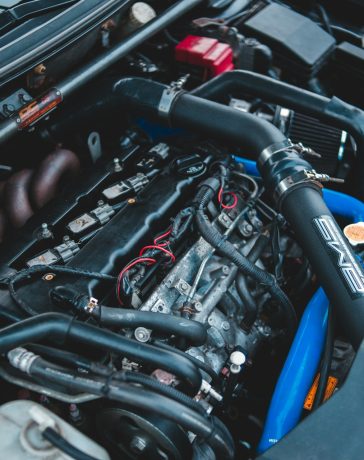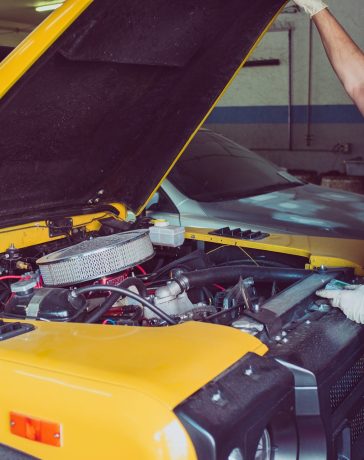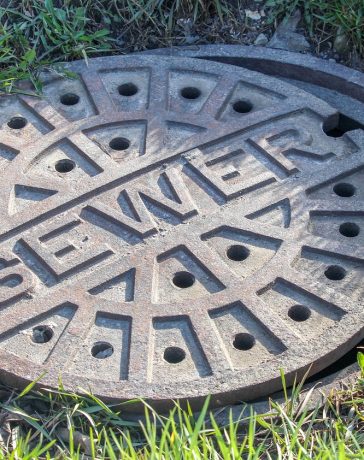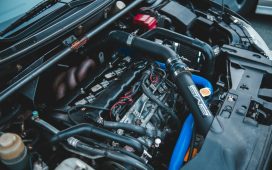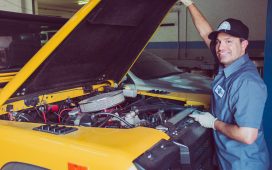Key Takeaways
- Regular maintenance is crucial for vehicle performance and safety.
- Understanding primary car care can save money and enhance the lifespan of your vehicle.
- Knowing the right time to seek professional assistance is crucial for intricate problems.
Introduction to Car Maintenance
Owning a vehicle is a significant responsibility. Consistent upkeep is crucial for maintaining smooth and safe operations. Many car owners need to pay more attention to the importance of routine checks and services. If you ever need professional assistance, an auto body shop Denver CO, can be a helpful resource to rely on. This article offers essential advice for caring for your car and ensuring it stays in excellent shape while helping you avoid unnecessary stress and costs.
Regular Oil Changes
One of the most critical aspects of car maintenance is changing the oil regularly. Oil serves as the vital fluid for your engine, greasing components in motion, decreasing resistance, and eliminating excess heat. Aged or contaminated oil can cause engine deterioration and low efficiency, potentially leading to significant engine harm if not addressed. Changing your oil every 3,000 to 5,000 miles is recommended, but always refer to your vehicle’s manual for specific guidelines. Neglecting this simple yet essential task can significantly decrease engine efficiency and, in some cases, catastrophic engine failure. Keeping up with regular oil changes improves your vehicle’s longevity and maintains its resale value.

Checking Tire Condition
Your tires are your car’s only contact with the road, making their condition paramount to your safety. Inspect tire condition, correct air pressure, and wheel alignment to maintain top performance and safety. Underflated tires can reduce fuel efficiency. In contrast, over-inflated tires can lead to uneven wear and an uncomfortable ride. Keeping tires properly can enhance fuel efficiency and reduce the risk of accidents. Form a routine of checking your tires once per month for any indications of damage or irregular wear. Remember to rotate them every 6,000 to 8,000 miles to ensure they wear evenly, and always keep a spare tire and necessary tools in your vehicle in case of emergencies.
Brake System Maintenance
Ensuring your brakes are in good working order is essential for safe driving. The braking system is your primary safety feature and is responsible for slowing down or stopping your vehicle. If you hear any strange sounds like squeaks or grinding and your vehicle is slow to stop, it’s a sign to get your brakes checked by a professional. Worn brake pads can damage other components like rotors if not addressed promptly. Regular brake inspections should be part of your vehicle upkeep schedule. In addition to enhancing safety, well-maintained brakes contribute to better vehicle control and stability, especially in adverse weather conditions.
Battery Care
Your vehicle’s battery is vital for starting the car and powering electrical systems. Ensure the battery is firmly secured to avoid vibrations, which could lead to harm. To avoid unexpected failures, replace your battery every three to five years. Additionally, keep an eye on the battery’s charge level; many modern cars have a dashboard indicator for this purpose. A well-maintained battery ensures reliable starts and efficient operation of electrical systems and prevents inconvenient breakdowns.
Fluid Checks
Besides oil, your car has several other essential fluids that need regular checking and replacement. These include transmission fluid, brake fluid, and coolant. Transmission fluid lubricates the transmission’s moving parts, brake fluid facilitates brake hydraulic action, and coolant controls the engine’s temperature. These fluids ensure your vehicle runs smoothly and can help avoid overheating or mechanical issues. Make it a point to check these fluids at least every few months or as recommended in your vehicle’s service manual. Neglecting fluid maintenance can lead to significant vehicle damage and costly repairs.
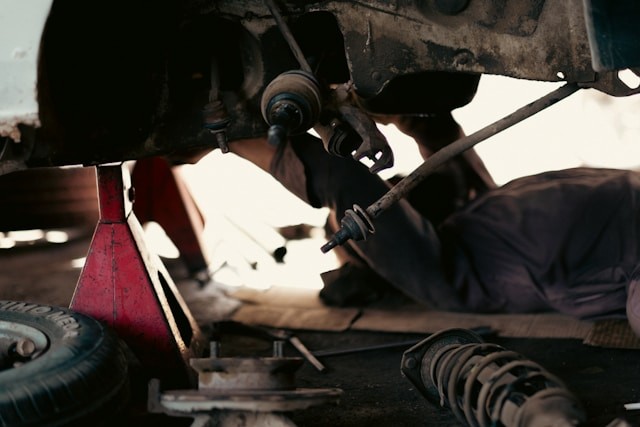
When to Seek Professional Help
While car owners can perform many maintenance tasks, some require professional expertise. Certified mechanics should handle complex issues like transmission repairs, electrical problems, or advanced diagnostics. For example, transmission issues can manifest as slipping gears or delayed shifting, requiring specialized tools and knowledge to fix. Understanding the right time to get assistance from a professional can help you save time and money and prevent any additional harm to your vehicle. Skilled mechanics possess the knowledge, equipment, and practical know-how to accurately identify and fix problems, preserving your vehicle’s top-notch condition.
Conclusion
Keeping up with vehicle maintenance is crucial to ensure its durability and dependability. Adhering to these tips and conducting routine inspections can enhance your driving experience for a safer and more comfortable ride. Remember, a well-maintained car ensures your safety and retains its value over time. Consistent upkeep and prompt repairs are beneficial investments over time. Take proactive steps to keep your vehicle in top shape before a minor issue becomes a significant problem.



















